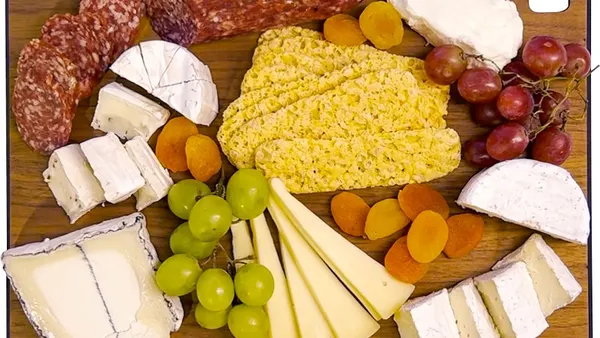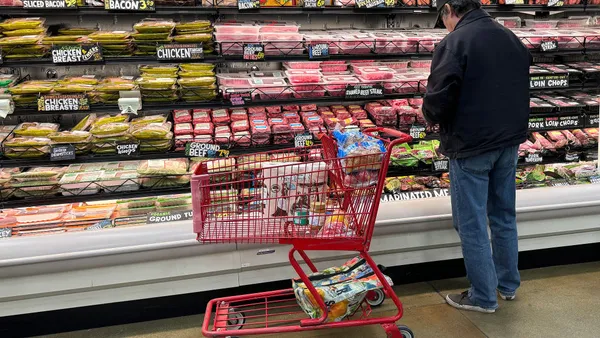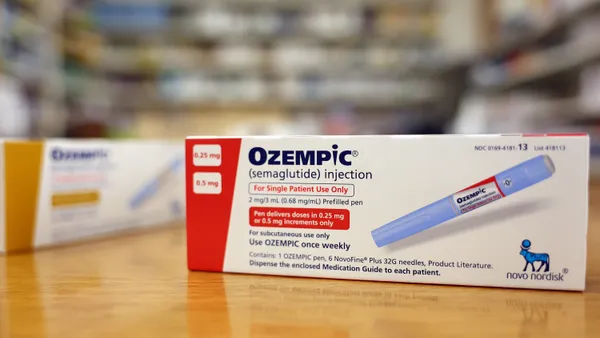Dive Brief:
- True Food Innovations, which now controls the meal kit brand, announced it's rolling out new offerings under its Chef’d and True Chef lines. The new “clean” label meal kits feature preservative-free recipes and require 20 minutes or less of total prep and cook time. Offerings include dishes like chicken piccata, peppercorn steak and saffron tomato chicken.
- A key differentiating factor for the meal kits is their 55-day shelf life, which the brand describes as an "absolute requirement" for success in the category. The extended shelf life stems from patent-pending formulations and high-pressure processing.
- Six months ago, privately held True Food Innovations acquired Chef’d, previously valued at $160 million, after the company announced a sudden closure last July.
Dive Insight:
The crowded meal kit space seems to be under a continual shake-up these days. Just last week, Bay Area meal kit company Munchery announced a sudden shutdown after nine years of operation despite raising $125 million in venture capital funding. It joined a long list of other meal kit company casualties like Sprig, Spoonrocket, and Bento. Chef'd is hoping to separate itself from the pack with shelf-life extending technology that promises to provide retailers and consumers with greater flexibility.
Boosting shelf life is an innovation geared towards in-store sales, which see a longer time span from production to consumption. With up to 55 days of shelf life, Chef’d’s meals aim to withstand distribution that often involves multiple steps, and then stay fresh on shelves, reducing food waste and lost dollars.
Offering its pre-packaged dishes for sale in-stores as opposed to a subscription service — a focus True Food announced when it took over Chef'd — makes it easier for curious consumers to pick up a few packages to try out in lieu of finding each ingredient in the store after a long day at the office. On the flip side, some consumers turn to meal kit companies because of their delivery service, which saves them the trip to the supermarket in the first place. Either way, delivering product to the store as opposed to each subscriber's doorstep will streamline shipping costs.
Even with its extended shelf life and well-known brand, True Food's venture deeper into the meal kit space is risky. Before its closure, Chef’d struggled with steep shipping costs and managing multiple recipes to appease consumers’ different dietary preferences, according to The Wall Street Journal. Offering kits in stores also puts them in competition with other prepared food offerings, from hot bars to heat-and-eat meals and sushi takeout. Despite all the buzz, meal kits' ability to stand out from a multitude of other meal options is by no means guaranteed.
A handful of meal kit companies have risen to success amid a saturated segment with more than 150 companies, including Plated which was purchased by Albertsons, and Home Chef, which was purchased by Kroger. This suggests that eventually being acquired by Big Food is the gold standard of meal kit success, especially in light of Blue Apron’s continual woes following its disappointing IPO performance. Last month, shares of the company fell below $1 after the startup launched its IPO at $10 per share.








